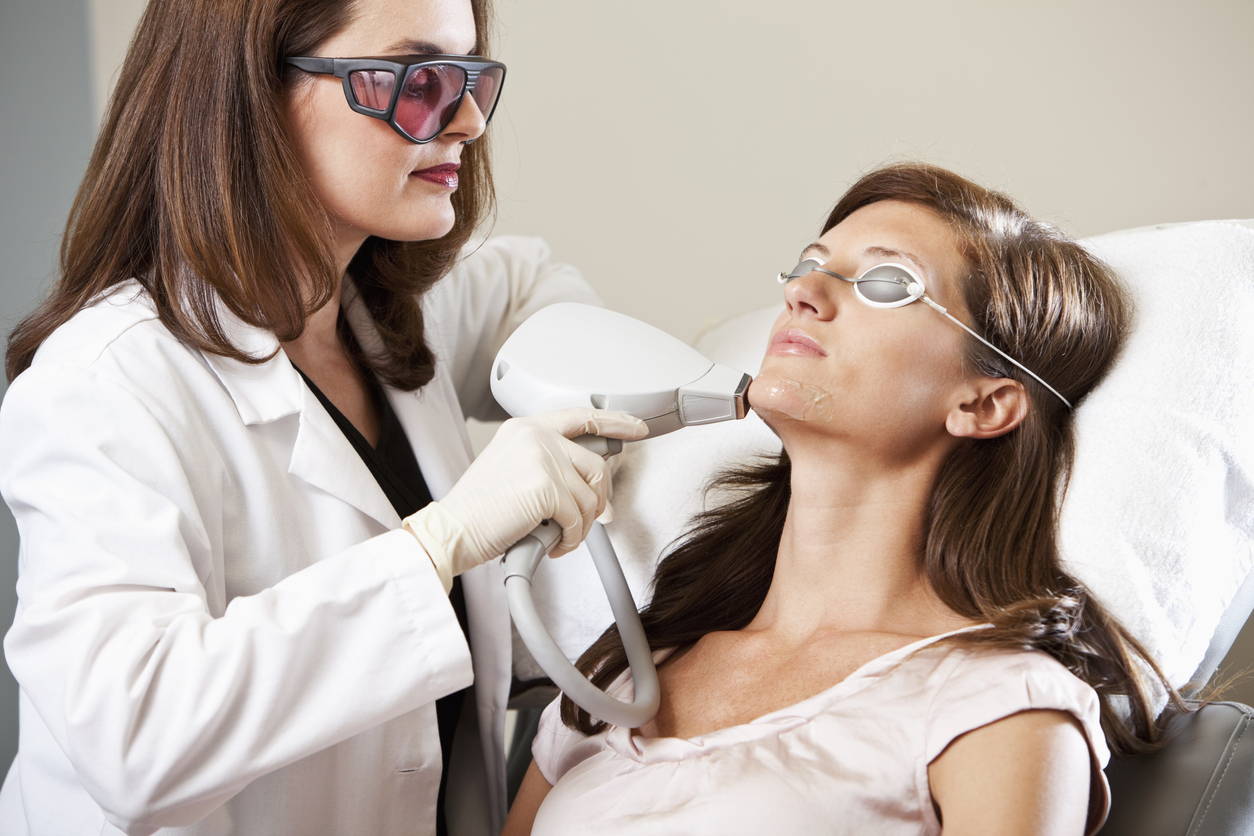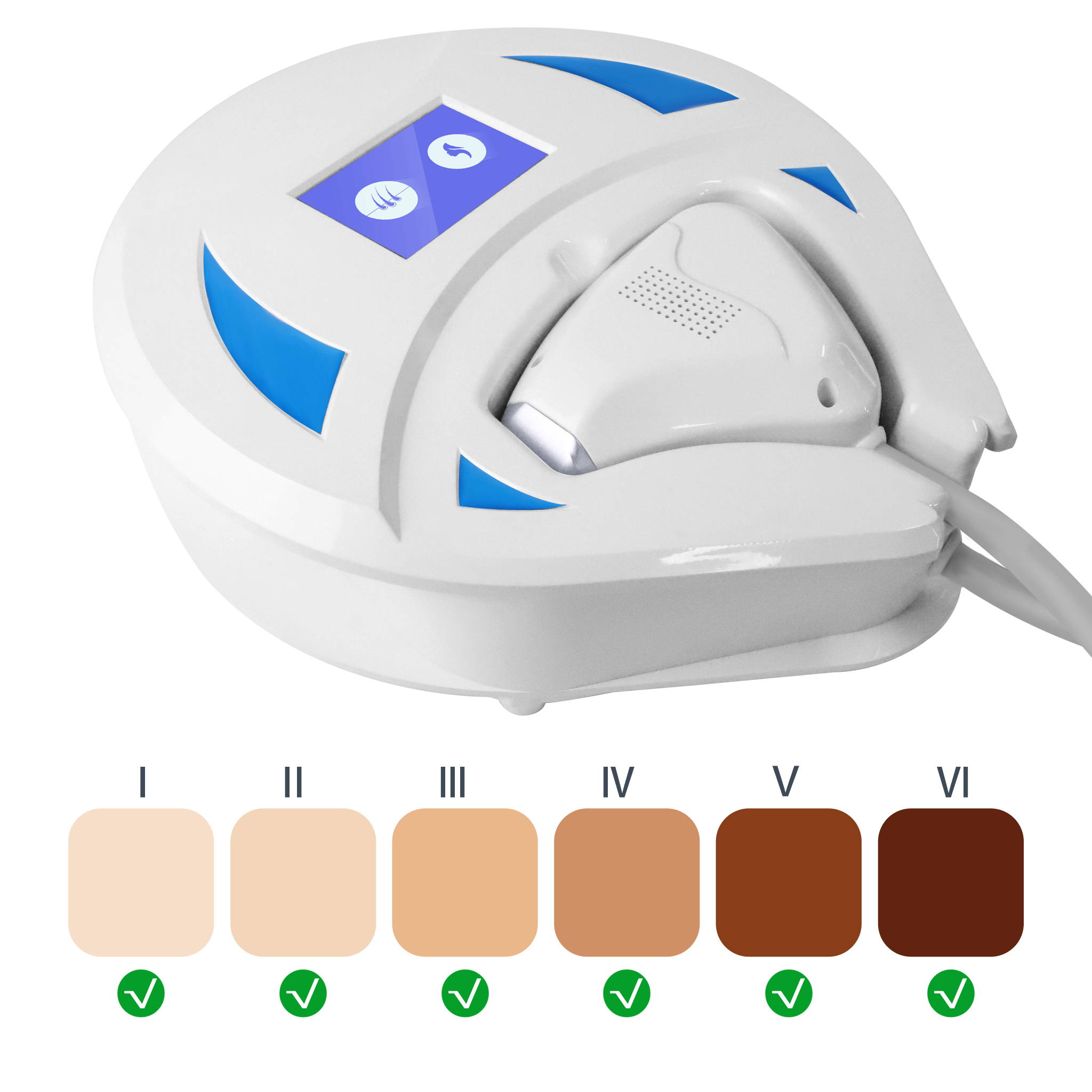
Meagan Wristen

There are some less-than-desirable things that happen to a woman as she ages. For example, finding that the first gray hair or experiencing perimenopause rage. Even worse, the first chin hairs because they are nearly impossible to get rid of.
No matter how many times you remove one, they seem to keep coming right back. For each one you rid yourself of, there’s one or two more eager to replace it. You might even find yourself keeping tweezers in your purse or car because nothing calls attention to the ones you’ve missed, like sunlight or office fluorescents. For many women, this predicament manifests somewhere in their 40s. It’s dreadful, but is it normal?
Why Are Chin Hairs Considered Normal?
As we get older, we tend to blame almost everything on our hormones. This is not without good reason because the truth is, they are to blame for a lot of odd things that go on with our aging bodies, and chin hairs are no exception. Women produce both male and female hormones, and as we mature, those can get off balance, especially during perimenopause.
As women age, they lose progesterone and estrogen, but for some, the testosterone, called androgen, stays. It’s the androgen that stimulates the growth of coarse facial hair. Typically, it is dark and appears on the cheeks, neck, chin, and lip.
What to do About Chin Hairs
There are a few things you can do to shorten the lifespan of a chin hair. You can go the DIY route and pluck them with tweezers or even shave them. However, neither of these options is a long-term solution. Waxing is a more effective way to remove chin hairs, and it lasts longer. However, waxing is still only a short-term solution and can sometimes be painful. For more permanent results, you have to take more extreme measures like lasers or electrolysis.
Lasers work by targeting the melanin in a hair follicle, and they slow hair growth by damaging the follicle down to the root. It’s not a permanent solution, but it will buy you a little time as the hair becomes thinner and easier to remove. The downside is that because it detects the hair by pigment, a laser is not an option for blond or gray hairs and isn’t recommended for people with dark skin. Though the procedure is relatively quick, it can get spendy, with a starting cost of around $200.

An FDA-approved permanent solution is electrolysis. Electrolysis uses an electrical current to destroy hair growth cells. It’s slow and uncomfortable but not expensive. It’s a slow procedure because it can only treat one hair at a time. Sessions typically last anywhere from 15 minutes to one hour. Depending on how many hairs you need to remove, it may require multiple sessions. The cost for electrolysis starts around $45-$50, so multiple treatments will still be affordable.
Take Care of It At Home
If you hate the idea of going to the salon time and time again to take care of an unwanted hair problem, we found a great solution that you can use at home. The ViQure Professional 808nm Diode Laser Hair Removal Machine is designed for home and salon use. It uses cutting-edge diode laser technology (which is the most suitable tech for permanent laser hair reduction). It also has 3 times more hair-eliminating energy – making this a fast and efficient option.
If you’re worried it’s not right for you, it’s suitable for all skin types (including dark skin) and body parts. And best of all? It’s compact and portable for use at your home or a salon and is FDA and CE-approved. With a price tag of $999, you’ll find it pays for itself after just a few uses – when compared to getting a laser treatment at the local salon – and it’s far faster and more effective than electrolysis. Even better, right now, you can get 12% off with code PRIMEWOMEN, making it an even more cost-effective option.
When Is Chin Hair Not Normal?
In premenopausal women, the abrupt appearance of dark facial hair can indicate an underlying issue like polycystic ovarian syndrome. This is a common condition that produces cysts on the ovaries. If you have irregular periods and suddenly grow chin hairs, see your doctor to rule this out. A quick blood test can determine whether your hormones are out of balance, and your doctor can help determine which course of treatment to take.
Read the original article: https://primewomen.com/beauty-and-fashion/skin-care-and-makeup/why-am-i-growing-chin-hairs/

